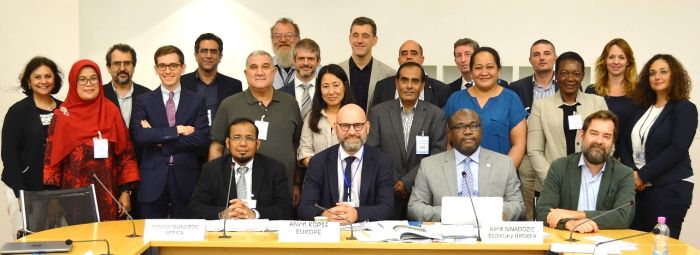In Search of Innovative Fund-raising

18/09/2018
Rome, Italy, 05 September 2018 – A special event on “Innovative funding, big data and other trends in funding biodiversity in agriculture” kicked off the 10th meeting of the Ad Hoc Committee on the Funding Strategy for the FAO International Treaty today.
FAO Assistant Director-General for Climate, Biodiversity, Land and Water, René Castro spoke of increasing efforts to access “green” financing (public funding sources) such as the Global Environment Facility (GEF) and the Green Climate Fund (GCF). He also encourage developing bilateral options such as “debt for nature” swaps, in addition to private-public partnerships, crowd-sourcing and partnering more closely with the Global Crop Diversity Trust.
Ambassador Hans Hoogeveen of The Netherlands said it was important to think outside the box of traditional UN fund-raising practices and explore new ways to cover the entire value chain, including the private sector. He suggested simplifying the messaging, and approaching not just the seed sector as the main representatives of the private sector, but also Foundations and other Non-Governmental Organizations.
“We can look at the private sector not only from the point of view of resource mobilization, but for examples as a provider of market opportunities for food crops,” said Jeffrey Griffin, Senior Coordinator, FAO Resource Mobilization Division working on GEF issues. Speaking of the difficulties in securing funding for agricultural biodiversity, he said, “This is one of the most challenging areas, but it also offers a lot of opportunities for a robust engagement of the private sector.”
“We must continue supporting smallholder farmers, who are the custodians of our global treasure-trove of plant genetic resources, while also being among the most vulnerable when it comes to coping with the consequences of environmental, climatic or manmade disasters,” said International Treaty Secretary Kent Nnadozie. “Our Governing Body, at its Seventh Session, mandated this Committee to make recommendations to help mobilize resources in a more predictable and stable manner and thus enable the steady continuation of the work of the International Treaty.”
Participating experts indicated that under the Seventh Replenishment Framework of the GEF, fewer resources are expected to be distributed with a new set of rules, but noted that there are now greater opportunities for the Treaty constituency to benefit from these resources, given the explicit references to the International Treaty in the GEF programming directions for biodiversity.
The event included discussions on other possible funding sources, mechanisms and approaches for biodiversity and food crops and noted some initiatives of the Global Crop Diversity Trust, such as “Food Angels,” which allows donors to sponsor safeguarding specific food crops.
The special event preceded the 10th meeting of the Ad Hoc Committee on the Funding Strategy and Resource Mobilization, which has been tasked by the International Treaty’s Seventh Governing Body to update the Funding Strategy for the International Treaty. The objective is to create a more predictable and steady flow of financial (and non-financial) resources to enable the International Treaty to continue key programs and areas of work, such the Benefit-sharing Fund.

Attendees of the Ad Hoc Committee on the Funding Strategy and Resource Mobilization
